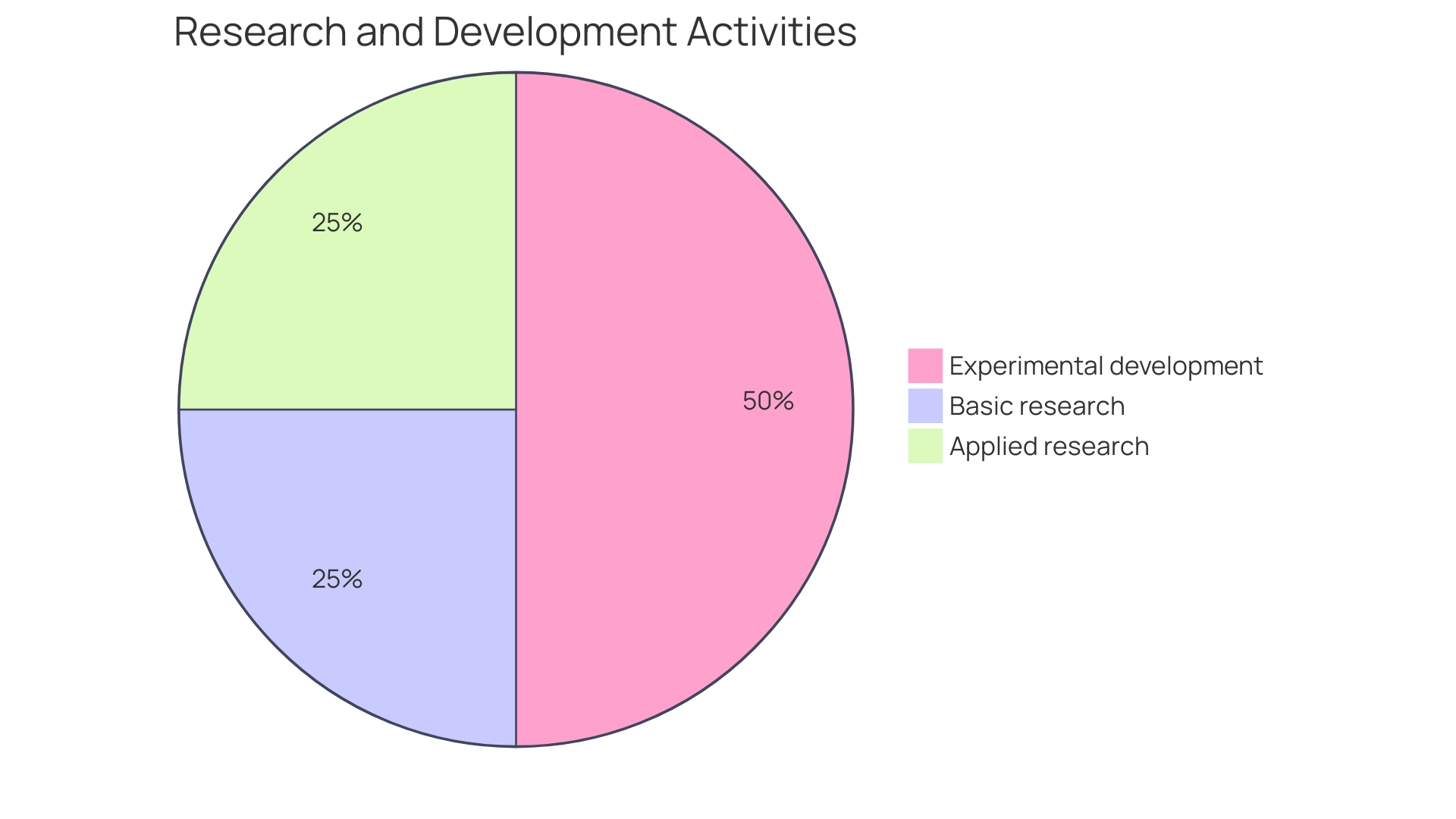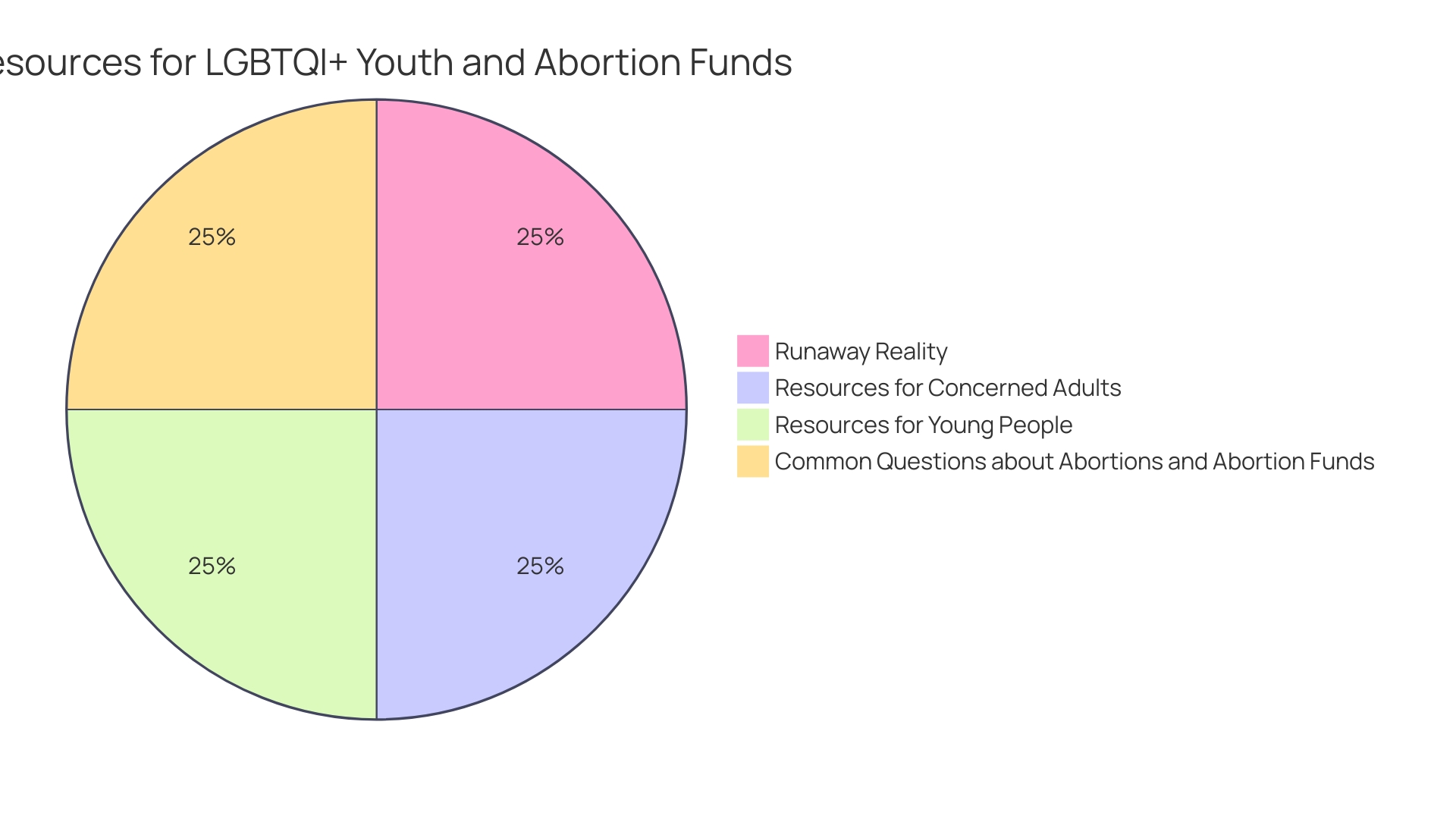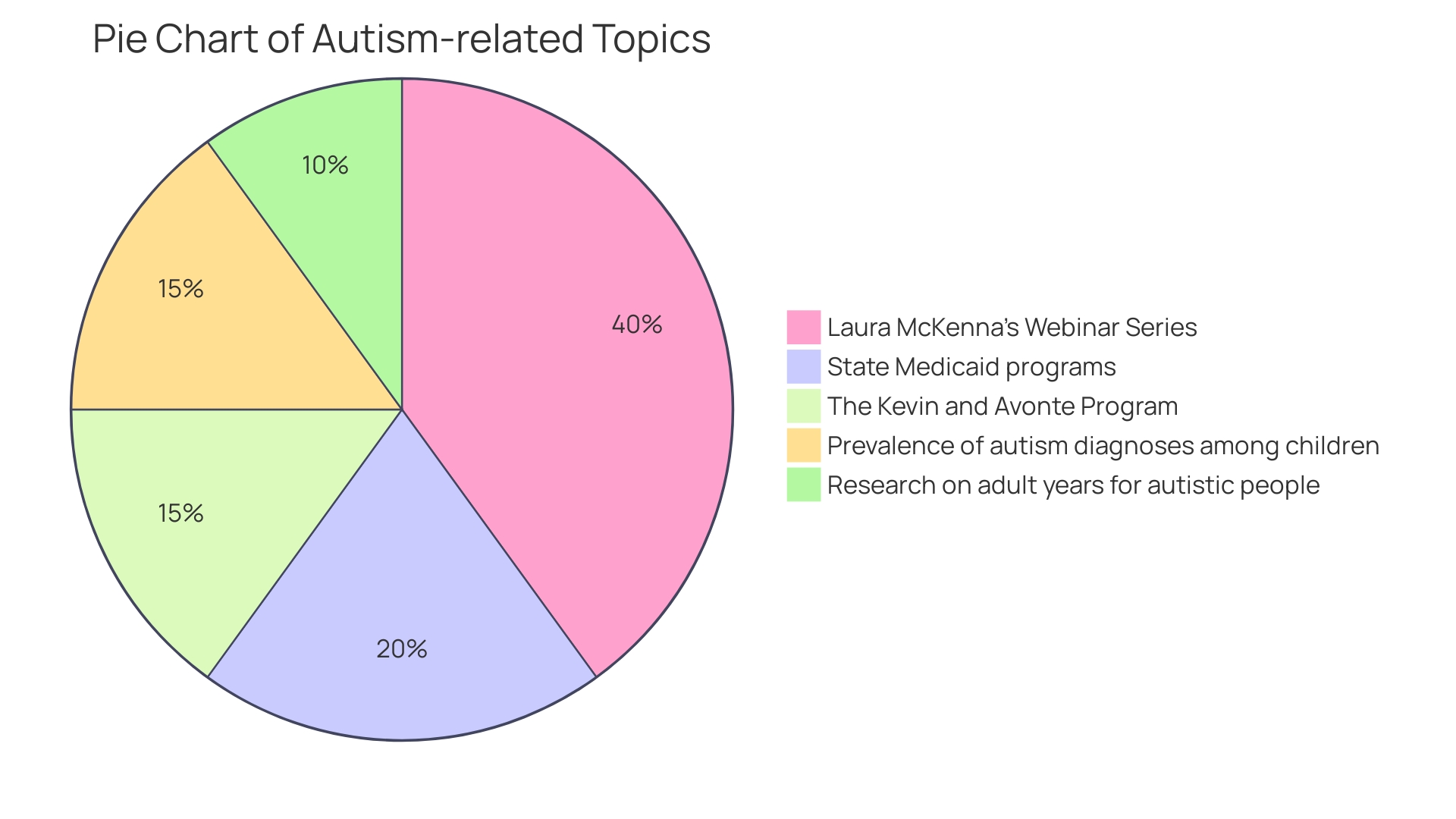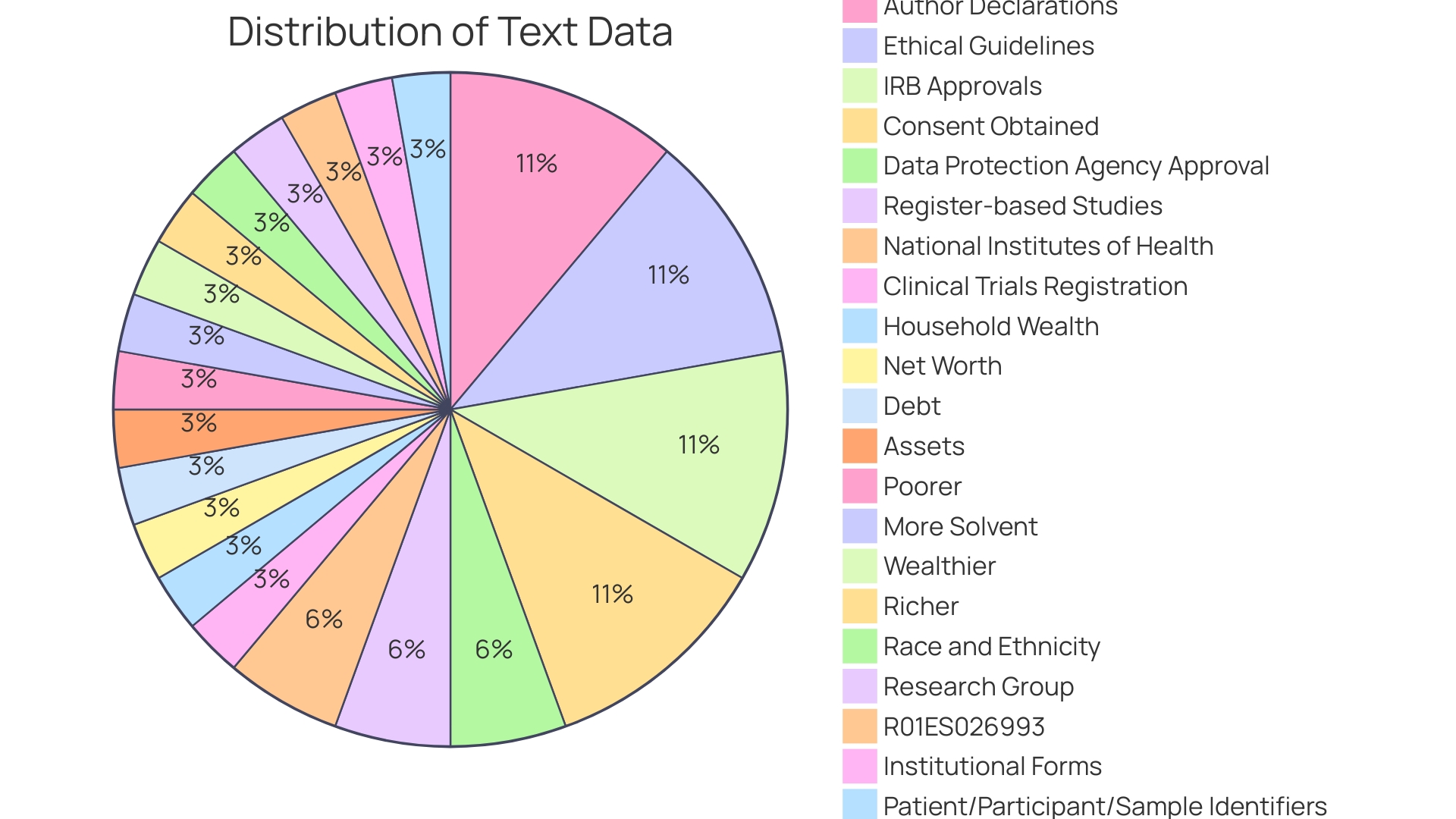Introduction
Autism grants provide vital resources for families navigating the complexities of autism spectrum disorder (ASD). These grants alleviate financial burdens and enable families to access specialized services, therapies, and educational resources that may otherwise be inaccessible. The importance of tailored support for children with ASD and co-occurring intellectual disabilities is underscored, and the peace of mind that comes with financial support reduces chronic stress for caregivers.
Autism grants embody the principle of equity, leveling the playing field and supporting the well-being of all children, including those with disabilities. By understanding the types of autism grants available and the key steps to securing them, families can navigate the grant application process with confidence. Grants also play a pivotal role in providing access to therapy services, such as behavioral therapy, speech therapy, and occupational therapy, which are essential for supporting family dynamics.
Furthermore, grants support educational outcomes by funding Individualized Education Programs (IEPs), 504 plans, and specialized educational services, creating inclusive and effective learning environments for students with autism. Navigating funding options beyond grants, such as Medicaid waivers, school-based services, and community resources, is crucial for families seeking financial support. Tax credits, deductions, and community resources offer additional avenues of assistance.
Building support networks through advocacy groups, parent support networks, and healthcare professionals is essential for families managing autism. Finally, strategic planning for long-term financial stability involves budgeting, exploring vocational opportunities, and early intervention. By leveraging autism grants and maximizing financial assistance, families can navigate the challenges of autism and ensure the well-being of their children.
Understanding Autism Grants: An Overview
The presence of funding opportunities for individuals with ASD is a source of hope for families navigating the complexities of autism spectrum disorder (ASD). These funds serve as essential resources, providing caregivers with the ability to cultivate an atmosphere where children with developmental challenges can flourish in educational, social, and recreational environments. Supporting the developmental journey of an autistic individual often requires access to specialized services and interventions, which can be financially taxing. Nevertheless, autism assistance aids in reducing these obligations, enabling families to obtain essential therapies, equipment, and educational resources that may otherwise be unattainable due to financial limitations.
Autism's early onset and the diversity of its manifestations—ranging from social communication hurdles to rigid behaviors—underscore the importance of tailored support. For example, individuals with ASD and co-occurring intellectual disabilities, comprising between 31-55% of the autistic population, can greatly benefit from interventions funded by grants. Furthermore, the tranquility that accompanies financial assistance can alleviate persistent strain for caregivers, aiding in the general mental health and well-being of the collective group.
In the words of the influential Dr. David (Dan) R. Offord, "I do not mind if my offspring are in a race as long as the race is fair." Autism aid represents this concept of fairness, balancing the opportunities by providing resources to assist the engaged, calm involvement of individuals with autism in the crucial aspects of existence. As we continue to make progress in autism research and services, the knowledge gained from initiatives such as the Autism CARES Act shed light on the frequency of autism, with current estimates indicating that 1 in 36 children are impacted.
In the end, the dedication to helping individuals with autism and their loved ones through financial support demonstrates a society's commitment to inclusiveness, where the psychological well-being and fair treatment of every child, including those with disabilities, are considered of utmost importance.
Types of Autism Grants: Government, Nonprofit, and Educational Support
Autism funding is a lifeline for families and organizations striving to navigate the complexities of the spectrum. These financial aids, which are donations that don't require repayment, come from diverse sources such as government agencies, non-profits, and educational institutions. Each funding serves as a beacon of support, whether it's financing specialized research, supporting educational programs, or providing resources for therapy and care.
Government agencies like the IACC play a pivotal role by coordinating and communicating across federal entities, ensuring that the provided grants are utilized effectively to foster progress in services for individuals on the autism spectrum. Their work underscores the importance of collaboration among various stakeholders, including adults on the autism spectrum and their families, to address the unique needs of the autism community.
In the realm of education, policy statements like the one from HHS-ED emphasize the importance of including individuals with disabilities in early childhood programs. These funding opportunities enable providers to establish inclusive environments, where evidence-based approaches assist individuals with autism spectrum disorder, guaranteeing they have equitable chances to flourish alongside their peers.
Grants are not just about financial assistance; they represent a commitment to excellence and results that can be measured beyond numbers. They encapsulate a promise to uphold the dignity and potential of every individual with a unique neurological condition, reaffirming that disability is a celebrated identity, rich with history, culture, and the capacity for innovation. By staying informed about the latest treatments, therapies, and approaches, caregivers can leverage these funding opportunities to make informed decisions, fostering a nurturing environment where children with neurodevelopmental challenges can achieve their fullest potential.
Key Steps to Securing Autism Grants: Research, Eligibility, and Application Tips
Navigating the application process for projects related to individuals with developmental disorders is similar to embarking on a specific expedition. It demands an in-depth exploration of opportunities, meticulous adherence to eligibility requisites, and the crafting of a compelling proposal. Take for instance the innovative concept of impact markets, where investment in charitable projects can potentially yield profits if funders opt to buy 'impact certificates' from successful ventures. Such a model underscores the importance of a persuasive proposal capable of attracting initial investors and subsequently, funders.
Exploring the details, proposals for funding should capture the core of your project, outlining the organizational history, projected impact, and additional services offered. An exemplar case is the project helmed by a Cambridge philosophy graduate, which secured $50,000 for a targeted initiative utilizing her expertise and connections within the financial sector for AI safety advocacy. Similarly, your application must resonate with the objectives and ethos of the grantmaking body to stand out.
The importance of public engagement is also highlighted by the call for submissions to the Interagency Autism Coordinating Committee, stressing the significance of voicing community needs in shaping research priorities. It's a testament to the power of well-articulated perspectives in influencing policy and funding directions.
Furthermore, leveraging relationships with decision-makers through platforms like LinkedIn and attending relevant conferences can substantially enhance your application's visibility. As expressed by the Autism Society, advocacy is not just about obtaining funds; it is about a dedication to the diverse needs of the community affected by autism.
Supporting this, statistics from the Kevin and Avonte Program reveal the tangible outcomes of targeted funding, with $10.3 million awarded to initiatives designed to safeguard individuals with developmental disorder from the dangers of elopement. The Autism CARES Act's $5 billion investment in research and services is another beacon, although it also signals the need for sustained and expanded funding.
Bear in mind, each funding proposal is a narrative that, if compellingly told, can secure not only financial support but also further the collective mission of enhancing the lives of those with autism and their loved ones.

Utilizing Grants for Therapy Services: Therapies, Interventions, and Assistive Technologies
Exploring the range of counseling services available for individuals affected by autism can be overwhelming, yet crucial for supporting dynamics within households. Grants play a pivotal role in providing access to these vital resources. Behavioral therapy, speech therapy, and occupational therapy are just a few of the interventions that can be financed through funding, each addressing specific aspects of autism. For instance, behavioral therapy focuses on improving social skills and reducing behaviors that may be harmful or disruptive, while speech therapy assists in communication challenges, and occupational therapy aids in the development of life skills.
In the context of the well-being of relatives, the North American Council on Adoptable Children (St. Paul, MN) has demonstrated the influence of support systems, supervising a national hotline that utilizes subsidies to provide information, referrals, and aid. This initiative underscores the importance of readily available aid and the profound impact of trained professionals and updated resources in addressing the multifaceted needs of families. The hotline's effective use of communication technology demonstrates a successful model for fund utilization.
Furthermore, recent progress, like the creation of an affordable MRI by CTSI awardee Efrain Torres, PhD, demonstrate the transformative capability of funding in broadening healthcare availability. This innovation, initially funded by an ODAT program, aims to alleviate health disparities by bringing critical diagnostic tools to children across communities, especially rural areas.
As we look towards the future, the growing elderly population also signals a need for increased services and support occupations. By 2032, a significant portion of the population will be over the age of 65, necessitating a rise in healthcare practitioners and support roles. Grants that support therapy services today are preparing the groundwork for a society that can better cater to the needs of all its members tomorrow.
By strategically utilizing financial assistance, we can not just tackle pressing health and social service requirements but also create a pathway for a more inclusive and supportive atmosphere for individuals with a developmental disorder and their families. The ongoing research and evidence-based practices funded by these grants are integral to crafting a better economic and health future for our youth and the wider community.
Leveraging Grants for Educational Support: IEPs, 504 Plans, and Specialized Educational Services
Obtaining financial assistance for educational services is crucial for children with developmental disorders to flourish in academic environments. Grants play a crucial role in improving educational outcomes by funding Individualized Education Programs (IEPs) and 504 plans, as well as providing access to specialized services tailored to each student's needs. By understanding various funding sources, families and educators can unlock opportunities to create an inclusive and effective learning environment for students with autism.
The Autism Community in Action (TACA) stresses the significance of informed decision-making, urging parents to always consult with their offspring's doctor for personalized advice on educational accommodations and services. Additionally, research undertaken by dedicated professionals has revealed significant advancements in supporting communication for children with complex needs, highlighting the transformative impact of these educational interventions.
For instance, the U.S. Department of Education's $6.5 million endowment to the University of Oklahoma exemplifies a nationwide commitment to enhancing special education. This collaborative effort across multiple universities aims to cultivate future leaders capable of improving the transition services for students with disabilities. Similarly, the Kevin and Avonte Program's focus on preventing wandering and elopement in individuals with autism spectrum disorder demonstrates how targeted funding can address specific challenges within the autism community, enhancing safety and awareness.
Further reinforcing the significance of educational support, the Welsh government's additional £20 million investment in the Sustainable Communities for Learning Program showcases a robust approach to upgrading educational infrastructure for learners with additional needs. These initiatives are evidence of the collective effort in leveraging grants to foster educational environments where individuals with autism can excel.
Research-based approaches, like those investigated by the University of Oklahoma and the examinations on ketosis carried out by UH researchers, offer priceless insights into enhancing educational and behavioral outcomes for children with ASD. By integrating scientific evidence with practical applications, these programs illustrate the power of research in shaping a better economic and developmental future for youth with autism.
The pursuit of excellence in special education is a continuous journey, and grants are a critical resource in this quest. They offer the financial backing necessary to implement evidence-based practices and innovative teaching methods that can profoundly influence the trajectory of a child's educational experience.
Navigating Insurance and Funding Options: Medicaid Waivers, School-Based Services, and Nonprofit Assistance
Finding the right funding options for those in need can be intimidating. Medicaid waivers, school-based services, and nonprofit assistance are crucial alternatives to grants that can provide much-needed financial support. Comprehending these paths is crucial, especially considering the difficulties encountered by numerous households.
The case of Claire's relatives in Los Angeles is a stark example of the difficulties encountered. Following Claire's surprising medical diagnosis, her relatives' existence was completely disrupted, resulting in economic difficulties and a dependence on public support for medical care. The Vasquez family's struggle, including the loss of income and the battle against insurance denials, underscores the importance of accessible information on how to maximize financial support.
Recent news has highlighted the precarious situation for individuals with special health care needs, such as the nearly 200,000 young ones in California who lost Medicaid coverage after the unwinding of COVID-19 protections. For these individuals, who often depend on Medi-Cal, such changes can disrupt their lifeline to essential services.
School-based services (SBS) are another key resource, providing a range of health care services that can significantly improve both health and academic outcomes for individuals in their early years, particularly those enrolled in Medicaid and the Children's Health Insurance Program (CHIP). The inclusive nature of these services means that they can address a wide array of needs, from preventive care to mental health support.
Moreover, the Biden-Harris Administration has implemented unprecedented measures to guarantee the well-being of children in the child welfare system, such as broadening the availability of legal assistance for children and their relatives. This program aims to keep households together securely and to assist them in maneuvering the intricate legal proceedings they frequently encounter.
In the midst of these challenges and opportunities, it is crucial that households are provided with the information and resources to advocate for the assistance they merit. For parents seeking to understand the intricacies of school funding, resources like the Peter G. Peterson Foundation's 'How Is K-12 Education Funded?' offer a neutral and comprehensive starting point.
By comprehending the accessible funding choices and how to efficiently navigate them, individuals can discover a path to stability and guarantee their children receive the care and support they require.

Maximizing Financial Assistance: Tax Credits, Deductions, and Community Resources
Understanding the financial landscape can be a complex task for individuals with autism. However, there are several avenues for support beyond direct grants that can provide relief and assistance. Tax credits and deductions are available that can help offset the costs associated with care and therapies. These financial tools are created to lessen the tax load on households, enabling them to allocate more resources towards the needs of their loved ones.
In addition to these tax benefits, community resources play a crucial role in supporting families. Local programs, often bolstered by the dedication and compassion of community members, offer a range of services from educational support to respite care. Initiatives like the Kevin and Avonte Program demonstrate the power of targeted support, having allocated $10.3 million to grant recipients since 2018 to prevent incidents of wandering, a common and potentially dangerous behavior in individuals with autism spectrum condition.
Furthermore, state Medicaid plans and waivers are tailored to address the specific challenges faced by the autism community, including managing severe behaviors. These state-specific strategies are particularly impactful given that Medicaid insures nearly one in every five people, with most autistic adults and many autistic individuals qualifying based on disability. This means access to care and services through Medicaid can be a game-changer for households.
The participation of families in these programs is not only about accessing financial assistance; it's about creating fair and equitable opportunities for their children to flourish in all aspects of life, echoing the sentiment of Dr. David (Dan) R. Offord. By utilizing these extra channels for assistance, individuals can aid in guaranteeing that their cherished ones with ASD are involved and properly backed, adding to their psychological well-being and the overall well-being of the household.

Building Support Networks: Advocacy Groups, Parent Support Networks, and Healthcare Professionals
Understanding the challenges of the spectrum of neurodevelopmental disorders is similar to being involved in a race, as stated by Dr. David (Dan) R. Offord, who advocated for equality and encouraged engagement in all aspects of life as a factor in mental well-being. This emphasizes the necessity for robust support networks that serve as the foundation for individuals managing autism. Whether it's advocacy groups that voice the economic importance of caregiving, as AARP has highlighted, or engaging in mutual competence through resources like the National Center for Systemic Improvement (NCSI), these networks provide the necessary scaffolding.
Families must also stay updated on the latest developments in treatments and medications, ensuring they have accurate information to make informed decisions about the well-being of their offspring. As caregivers assess the myriad of information online, organizations like COFACE Families Europe stand as pillars of advocacy, intertwining the rights of persons with disabilities and their carers within the fabric of society. With the right support, equitable participation becomes more attainable, ensuring that every member's mental health and well-being are nurtured.
Strategic Planning for Long-Term Financial Stability: Budgeting, Vocational Opportunities, and Early Intervention
Attaining financial security in the long run is a fundamental aspect for households with individuals on the autism spectrum. It's not just about meeting immediate needs, but ensuring a secure and fulfilling future for your offspring. Tackling this requires a multifaceted approach, beginning with a realistic assessment of your non-discretionary expenses, such as housing, insurance, and groceries. Once you have a handle on these, it's time to strategize ways to enhance your income through vocational opportunities and savings plans.
One of the most impactful strategies is to automate your budgeting and savings. As financial expert Curtis advises, setting up automatic payments for fixed expenses can reduce stress and free up time to focus on other financial goals. Meanwhile, tracking variable expenses can help you adapt and stay on course.
Understanding the full scope of childcare costs is also critical. For instance, while daycare expenses are steep in the early years, they will eventually decrease, allowing for potential savings. Assessing the need for a change in housing, and the associated costs, is another key financial consideration.
A proactive step is establishing a special-needs trust, which provides financial support without affecting eligibility for government benefits. ABLE Accounts offer another avenue for tax-free savings that protect benefits eligibility.
Lastly, embracing financial education within the household is advantageous. Incorporate discussions about money into daily life, teaching children the value of planning and the importance of flexibility. This not only prepares them for the financial aspects of life but also instills essential life skills.
These strategies and tools for a comprehensive plan to build financial security and empower your family in the journey with autism.

Conclusion
In conclusion, autism grants are a vital resource for families navigating the complexities of autism spectrum disorder (ASD). These grants provide financial support that alleviates burdens and enables families to access specialized services, therapies, and educational resources that may otherwise be inaccessible. By understanding the available grants and the key steps to securing them, families can navigate the grant application process with confidence.
Autism grants play a pivotal role in providing access to therapy services, such as behavioral therapy, speech therapy, and occupational therapy, which are essential for supporting family dynamics. These grants also support educational outcomes by funding Individualized Education Programs (IEPs), 504 plans, and specialized educational services, creating inclusive and effective learning environments for students with autism.
Navigating funding options beyond grants, such as Medicaid waivers, school-based services, and community resources, is crucial for families seeking financial support. Tax credits, deductions, and community resources offer additional avenues of assistance. Building support networks through advocacy groups, parent support networks, and healthcare professionals is essential for families managing autism.
Strategic planning for long-term financial stability involves budgeting, exploring vocational opportunities, and early intervention. By leveraging autism grants and maximizing financial assistance, families can navigate the challenges of autism and ensure the well-being of their children.
Overall, autism grants provide vital resources and support for families, empowering them to navigate challenges and ensure the well-being of their children with autism. By understanding the available resources and taking proactive steps, families can create an inclusive and supportive environment for their loved ones with autism.
Learn more about securing autism grants and navigate the application process with confidence.




